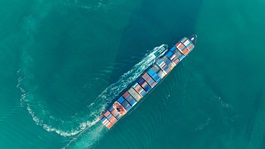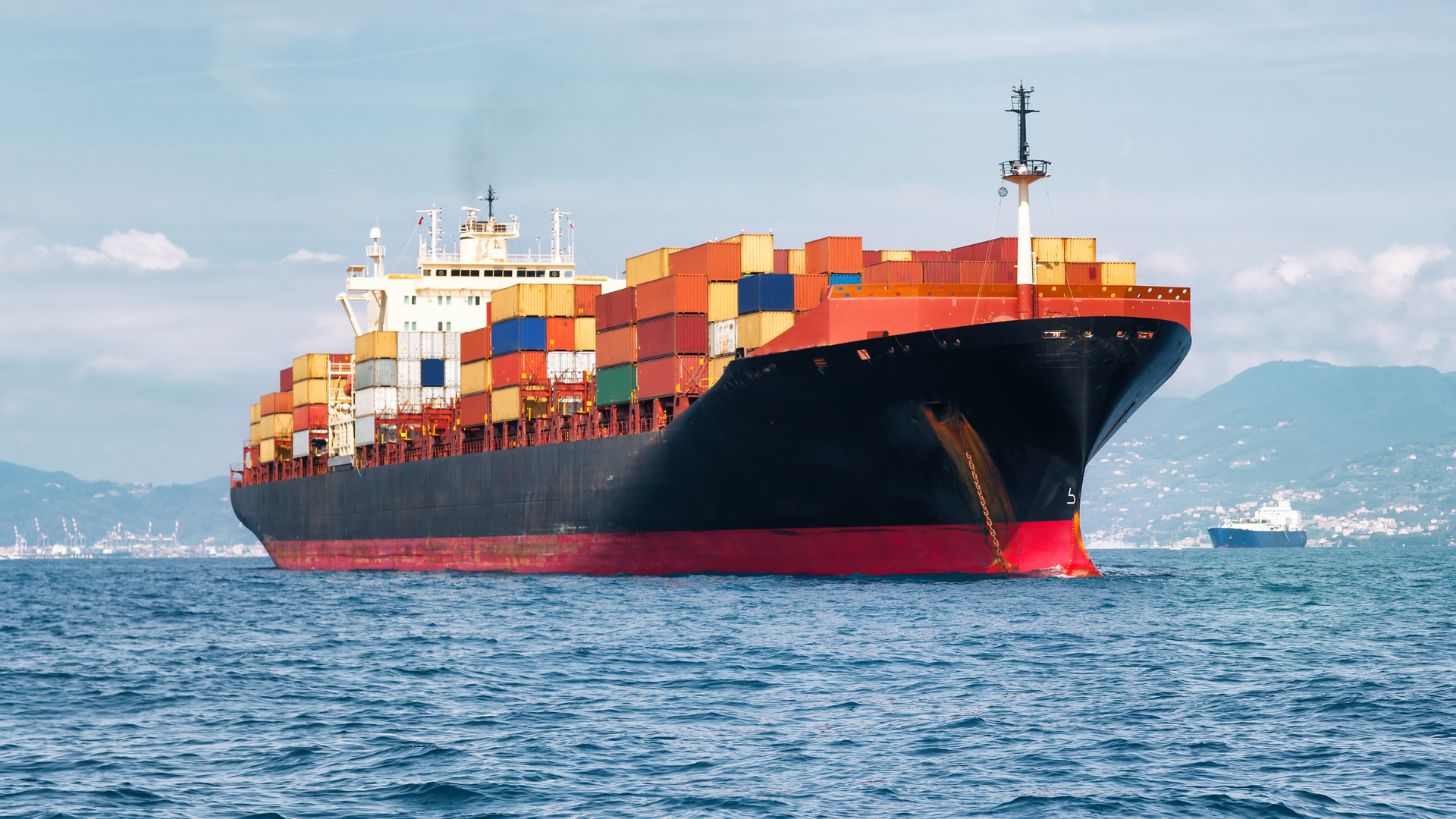EU Green Deal and Maritime Fuel
As we reported here, in July 2021 (and have since revisited), the EU published its update to the "green deal", known as “Fit for 55” in reference to the 55% reduction in carbon emissions targeted for 2030. A large number of the “Fit for 55” proposals affect shipping: a prime example is the draft measure to extend the scope of the EU Emissions Trading System (EUETS) to include maritime transport. The EU also proposed a trio of measures relating to maritime fuel, which we examine in this article.
FuelEU Maritime Initiative
FuelEU Maritime Initiative (FuelEU Initiative) is intended to apply to all vessels over 5,000 GT visiting a port within the EU, regardless of the flag of the vessel. The initiative captures not only intra-EU voyages, but also 50% of emissions from voyages which start outside of the EU and end at an EU port, or which start at an EU port but end at a port outside of the EU. It sets out the following proposals:
- A requirement to improve greenhouse gas (GHG) emissions from vessels in the following increments (from a 2020 baseline):
- - 2% from 1 January 2025;
- - 6% from 1 January 2030;
- - 13% from 1 January 2035;
- - 26% from 1 January 2040;
- - 59% from 1 January 2045;
- - 75% from 1 January 2050.
- From 1 January 2030, there are additional zero-emission provisions, requiring that (subject to some limited exceptions), ships which are at berth in an EU port for more than 2 hours will be required to connect to an on-shore electricity supply.
- Ship operators will have to submit monitoring plans in 2024 to confirm the method by which they will monitor emissions to evidence compliance with the GHG reduction targets set out above. The monitoring will have to be externally verified, as will the reporting under it, with a “FuelEU” certificate being issued for each compliant ship, which will be checked at ports across the EU as part of usual vessel inspections. It is not anticipated that compliance with the monitoring requirements will be particularly onerous given that vessels already must comply with either or both of: (1) the European Union (EU) MRV Regulation (Regulation (EU) 2015/757 on the monitoring, reporting and verification of carbon dioxide emissions from ships by which ship operators have been reporting since 2018; or (2) the International Maritime Organization (IMO) Fuel Oil Data Collection System (DCS) on the collection and reporting of ship fuel oil consumption data by MARPOL Regulation 22A which also came into force on 1 March 2018.
- There are penalties for non-compliance:
- For the requirement to connect to an on-shore electricity supply when at berth in an EU port, there is a penalty for each non-compliant port call, calculated by multiplying EUR 250 by the number of megawatts of on-board power and the number of hours spent at berth; and
- For the requirement to reduce GHG emissions, if the external verifier finds that a vessel has not complied with the reduction targets, then a penalty will be imposed, which will be calculated by the external verifier using a prescribed methodology.
The draft legislation envisages that funds received from penalties for non-compliance will be used to support projects aimed at the development of non-carbon fuels in the maritime sector.
- If a ship operator receives a penalty under the FuelEU Initiative, the external verifier can still issue a “FuelEU” certificate if the penalty has been paid. If a ship fails to hold a valid FuelEU certificate for two consecutive years, then additional enforcement steps can be taken: this might include an expulsion order be granted by the port state, meaning that the ship will be barred from calling at all other ports in the EU and, should the port be located in the ship’s flag state, the relevant Member State will be empowered to detain the ship until it fulfils its obligations.
Energy Taxation directive
The proposed amendments to the Energy Taxation directive are intended to come into force in 2023 and will impose taxes on marine fuel sold in the EEA for voyages within the EEA. A 10 year transition period (the Transition Period) is envisaged, with the tax rates rising for some fuels at the end of the period. The proposed taxation rates are as follows:
- gas oil, heavy fuel oil, kerosene and non-sustainable biofuels will be taxed at 0.9 Euros per Gigajoule, with no reduction during the Transition Period;
- LPG, LNG, non-sustainable biogas and non-renewable fuels of non-biological origin will be taxed at 0.6 Euros per Gigajoule during the Transition Period and 0.9 Euros per Gigajoule afterwards;
- sustainable food and feed crop biogas and sustainable food and feed crop biofuel will be taxed at 0.45 Euros per Gigajoule during the Transition Period and 0.9 Euros per Gigajoule afterwards;
- sustainable biofuels and biogas will be taxed at 0.45 Euros per Gigajoule both during and after the Transition Period;
- low carbon fuels will be taxed at 0.15 Euros per Gigajoule during the Transition Period and 0.45 Euros per Gigajoule afterwards; and
- renewable fuels of non-biological origin, advanced sustainable biofuels and biogas will be taxed 0.15 Euros per Gigajoule both during and after the Transition Period, as will electricity.
The draft legislation includes latitude for EU governments to extend these taxes to bunkers sold for international voyages.
Revision of the Directive on the deployment of alternative fuels infrastructure 2014/94/EU (also known as the CPT Directive)
The draft revisions to this directive which introduced EU rules to ensure the build-up of alternative refuelling points across Europe with common standards for their design and use are intended to dovetail with the FuelEU Initiative and include proposals to:
- establish a Trans-European Transport Network power network that will allow ships to access LNG refuelling across the EU;
- ensure that ships have access to clean electricity in port;
- require EU member states to have a plan for national policies around the use of, and provision of infrastructure for, alternative fuels for ships.
The cost of cleaner fuel
These three measures show a commitment from the EU to the decarbonisation of the maritime sector and an attempt to address some of the difficulties which will arise: for example, by not having infrastructure in place to allow vessels to use less polluting fuels when they start to become widely available. There will be a number of other barriers to the more widespread use of alternative fuels in the maritime industry which the legislation cannot yet address such as issues around fuel standards and availability of fuels (and indeed what type of fuels will prove to be the most practicable to introduce), but the proposals acknowledge these difficulties and send a clear message that member states must start to tackle these very difficult and complex issues. This is easier said than done given the lack of an obvious substitute for fuel oil on which almost all ships currently rely.
If these measures are adopted, it is clear that they will result in additional costs for ship operators and their customers: not only from the taxation of fuels but also with practical compliance with the FuelEU Initiative. These costs will need to be aggregated with the cost of being included with the EU ETS which will start to come in as soon as 2023. Whilst the combination of these proposals will create a great financial incentive to decarbonise, the level of investment in port facilities, new fuels, new distribution networks and new ships will be enormous and such investment decisions will have to be made against a background which offers no obvious technical solution to finding a safe alternative to fuel oil. Whether such decarbonisation is technically feasible or practicable on the time scales that the EU envisages remains in doubt. Furthermore, the intention to impose a carbon levy on ships operating on the high seas outside EU waters is not without opposition both within and outside the EU, not least because of the detrimental effect such unilateral imposition may have on the efforts of the IMO to find a global solution.






